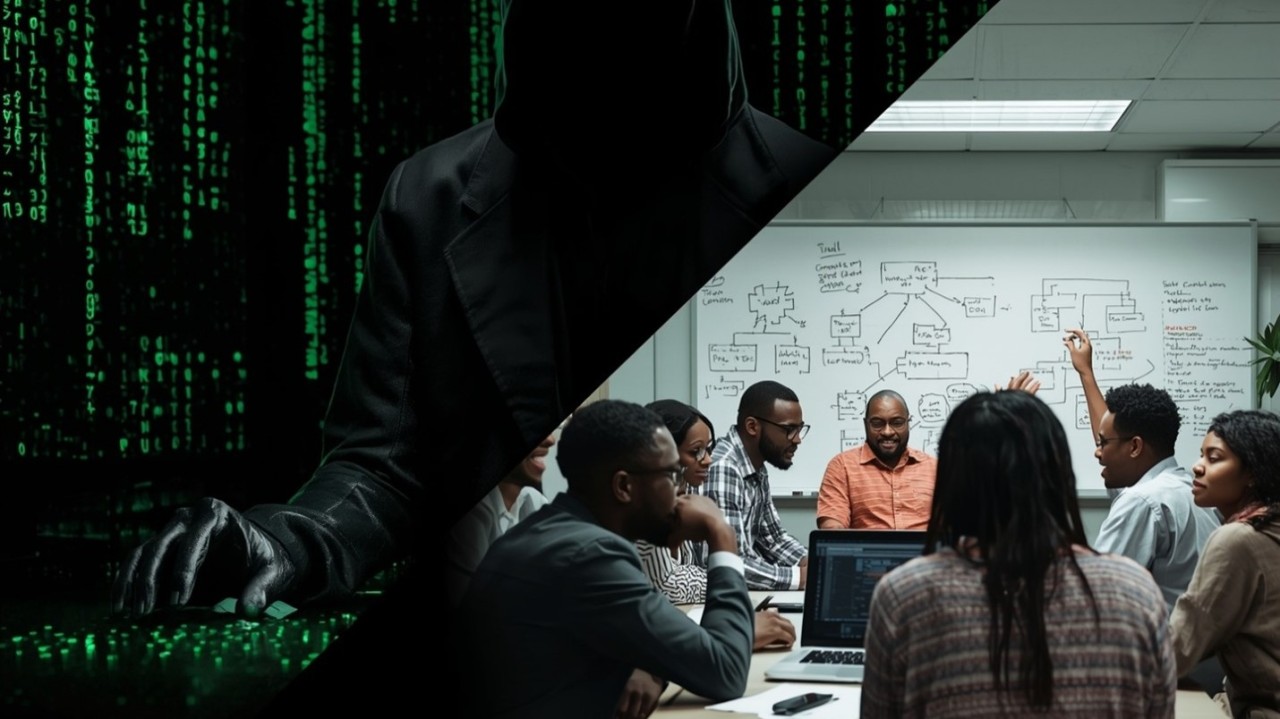Building a Supportive and Open Workplace Culture Can Help Minimise Your Cybersecurity Risk
In an age of increasing technological reliance, many business leaders underestimate the value of seeking growth and excellence in the non-technical areas of their venture development.
These ‘softer elements’ are just as if not more important for any venture looking to achieve sustainable success. Building an organisational and workplace culture that is supportive and encourages learning is critical not just for the well being of employees but also for the organisation’s growth and sustainability.Africa’s most prominent technological ecosystem, Nigeria, is vulnerable to cyberattacks over past the years.
As the number of remote working rises, companies are faced with an increase in cyberattacks. A recent report released by Sophos, a cybersecurity company shows that 70% of organisations suffered a public cloud security breach in 2019. Nigeria has the second-highest percentage (88%) of organisations that suffered cloud security breaches in that time.
In 2020, Deloitte predicted that the main targets for cyber attacks would be cloud-based systems, user mobile devices and the systems of Small & Medium Enterprises (SMEs) especially organisations in the non-financial sector. The increasing digitisation of SMEs’ business operations has created an opportunity not just for revenue growth but also for hackers.
This cybercrime is not just targeted at the financials of such SMEs, it is often designed to also put their customers at risk. For instance, the hacker accesses an SME’s client database and sends emails to their customers under false pretenses.
Early detection of data breaches can prevent more damages. Employees have access to businesses’ sensitive information and may fall victim to phishing emails and other online scams.
Where workplace culture is toxic, an employee might be too scared to report this promptly. And especially where structures for effective communication and feedback do not exist, it might be too late before the breach is detected.If companies create a culture of openness, supportiveness and communication, employees would be more comfortable reporting issues and asking questions to avoid making bad decisions. It does not matter how credible your technical security system is, the weakest link in any security system will always be its human element.
The stronger the human element the stronger the overall security measure.The fight against cybercrime must therefore evolve as new threats and methods arise. Company leaders must regularly train their employees to expect attacks and prepare for them. Staff need to be able to identify threats and handle them accordingly whether this means deleting an email or passing it along to the IT team.
Generally, maintaining up to date software and using two-factor authentication is also a great measure of protection.Our principle at Spurt! is to always keep people’s well being as well as overall human capital development at the center of our drive to propel the growth of African businesses. We offer a range of services including information and data security trainings and tools to venture leaders looking to safeguard their businesses.
Summary
The human element plays a significant role in the development and growth of an organisation. It can also be the weakest link in the security system of the organisation. One of the effects of the COVID-19 pandemic as a result of remote working is an increase in cyberattacks such as phishing and data breaching of companies’ sensitive information.
It is advisable for companies investing in cybersecurity to consider training their staff in data protection skills and organisational behaviour. Employees should be adequately equipped with relevant technical skills in an organisation.



